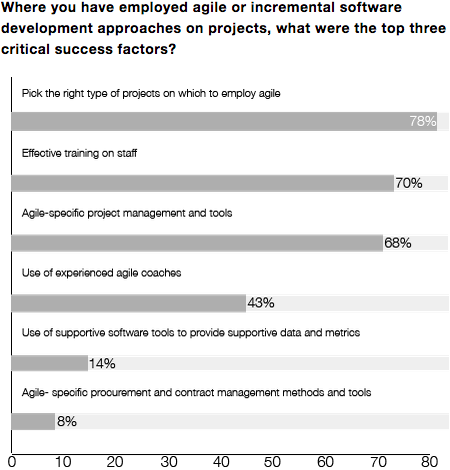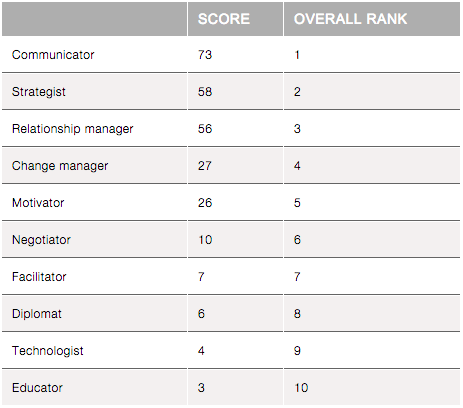Connecting state and local government leaders
Procurement and contracting policies aren’t keeping pace with citizen demand for state services and software, according to the sixth annual survey.
SALT LAKE CITY — In the state government technology community, there are few surveys that are more highly anticipated than the National Association of State Chief Information Officer’s annual State CIO Survey.
It not only provides an incredible level of insight into current state government IT challenges and attitudes of IT leaders in state capitals around the nation on a variety of issues but serves as a measuring stick for those leaders to gauge where their states are in comparison to their peers around the nation.
Before a packed hotel ballroom on Tuesday morning, NASCIO Executive Director Doug Robinson officially released this year’s survey and was joined on stage by two state CIOs, Mark Raymond of Connecticut and Jason Allison of Florida, and Graeme Finley, the managing director of global public sector for Grant Thornton LLP, the auditing, tax and advisory firm that co-sponsored the survey with NASCIO and CompTIA.
Overall, the survey, which was answered by CIOs and other CIO-level officials in 47 U.S. states and territories, shows that “what we’re doing is not maintaining the status quo, we are transforming our operations,” Doug Robinson, NASCIO’s executive director, said collectively of the state CIO community across the nation.
Some of the most interesting results from this year’s survey focused on state governments’ experience and experiments with agile service delivery and sourcing models, a topic of extreme interest for anyone involved in the procurement and delivery of state government software and other IT development projects.
State CIOs are embracing agile and incremental software delivery to combat the perception their governments are struggling to quickly meet rising citizen expectations, according to the survey.
At the federal level, incremental development has been defined by the Office of Management and Budget as delivery of new or modified software and services every six months. Compared to the traditional “waterfall” approach with a defined and structured timetable for development and delivery, incremental and agile approaches allow flexibility in the process to allow for more experimentation, and if needed, opportunity to shift course, based on discoveries made during the development process.
“It really speaks to me,” Allison said of agile approaches. “As soon as things shift and things change, we can move with it.”
Raymond echoed Allison’s observations.
“The whole idea behind agile and incremental development is imperative for us” in Connecticut, he said. “We have to look at incremental ways to add value.”
While almost 75 percent of states expect to ramp up their agile approaches, according to the survey, most states currently have limited projects that lack centralized oversight or guidelines.
“To be honest, we were surprised that there’s so much activity” with agile, Finely said, noting that “almost all states have some level of activity,” though it is most likely to be decentralized across agencies. And “those that are doing it are very enthusiastic about it,” he said.
But as the NASCIO survey details, state policies and processes often fail to support agile development, per the survey:
Although there are many incremental software development approaches available, agile is by far the most commonly used approach, and we used the term ‘agile’ to refer to incremental approaches in general throughout the survey.
Only 9 percent of state CIOs boasted a statewide approach to agile that invested in state-level training and project management office programs. And one-fifth of state CIOs said agile development bested a waterfall approach.
Knowing the right projects to employ agile is critical, according to the survey, for which some states turn to agile coaches.

A mere one-in-10 states indicated they’re tweaking procurement procedures in an effort to become more agile.
“I’m sold on it as a path forward,” Allison said, but said a lot of work to be done to make sure departments and agencies in his state use agile and incremental methods effectively. “I’m up to the challenge.”
Finley noted how agile is “a tool” and “not a silver bullet.”
There can be risks and state should have measured expectations with their forays into the world of agile development.
“It can be misused,” Finley said. “Picking the right project is important … and it has to be implemented with discipline.”
Another interesting trend noted in the survey is the notion of the state CIO as a “broker” of shared services—a movement away from the direct provider model.
As state CIOs increasingly outsource services to providers, they expect government funding to decrease because they won’t need as much technology infrastructure.
“We find ourselves actively shrinking our data center footprint,” Allison told the assembled conference crowd.
State CIOs also weighed in on the key leadership roles requisite to their job and listed “communicator” as far and away the most important, followed by “strategist” and “relationship manager.”

The need for communication skills makes sense given a CIO’s job elucidating their states’ innovative visions, engaging the public, working with elected officials and partnering with vendors.
Security and risk management was cited as the second-most important focus after vision.
Explore the full results of NASCIO’s 6th annual State CIO Survey.
Michael Grass is Executive Editor of Government Executive’s Route Fifty and reported from Salt Lake City. Route Fifty News Editor Dave Nyczepir reported from Washington.

NEXT STORY: 5 Things Innovative States and Cities Have in Common



